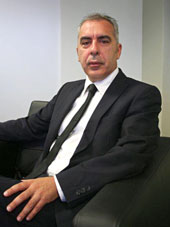
A CREDENTIAL WITH INTEGRITY - From the President of the HSC

The Oxford Dictionary defines integrity as ‘the quality of being honest and having strong moral principles’. When I started thinking about the Higher School Certificate, the word ‘integrity’ was foremost in my thoughts. The reasoning behind this is that the HSC remains a credential with integrity that is acknowledged across the globe.
But back to the definition, let’s look at being honest.
This involves another trio … one that also includes students:
Who certifies that you will not Plagiarise - Mrs Davis does.
Program completion will be certified on both the Preliminary and HSC Confirmation of Entry - Principal's Certification forms that principals sign and submit in conjunction with the confirmed Preliminary and HSC entries from their schools. A check box is included in the list stating that all students have satisfactorily completed the HSC: All My Own Work program or its equivalent.
Definition of Plagiarism
Plagiarism is defined as stealing and passing off the ideas and words of another as one’s own, when it actually comes from another source. This source may be written, oral or electronic, and includes copying/pasting from the internet (both text and image) and the retrieval of research papers from the internet. Copying as little as three consecutive words is considered plagiarism.
(From Danebank's Plagiarism Policy)
View this policy on Moodle
http://www.danebank.nsw.edu.au/wp-content/uploads/Plagiarism-Policy..pdf

http://www.pleasedontcheat.com
TinEye
TinEye is a reverse image search engine. You can submit an image to TinEye to find out where it came from, how it is being used, if modified versions of the image exist, or to find higher resolution versions.
TinEye is the first image search engine on the web to use image identification technology rather than keywords, metadata or watermarks. It is free to use for non-commercial searching.
Plagiarism Checkers (MakeUseof.com, five free services)